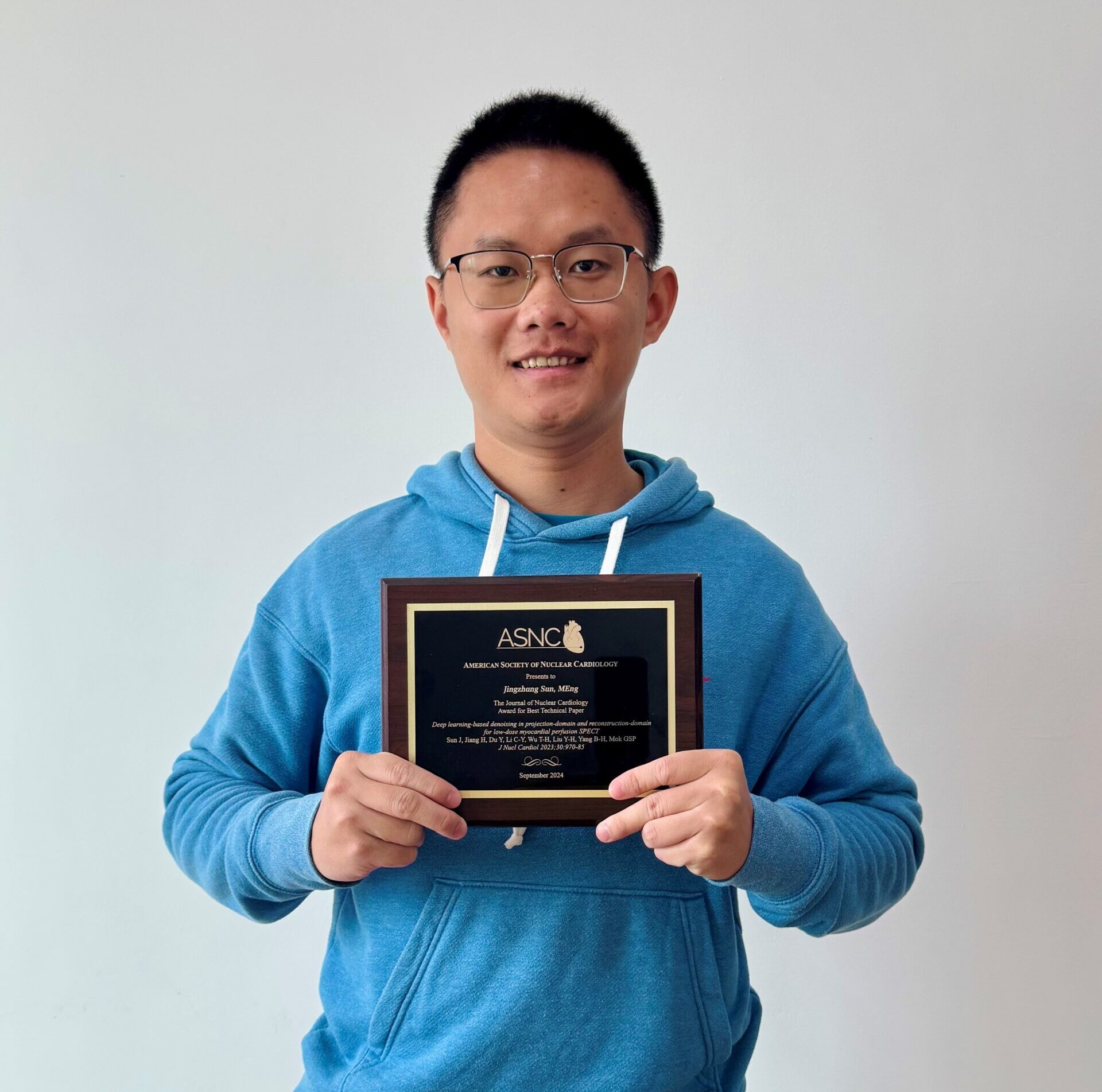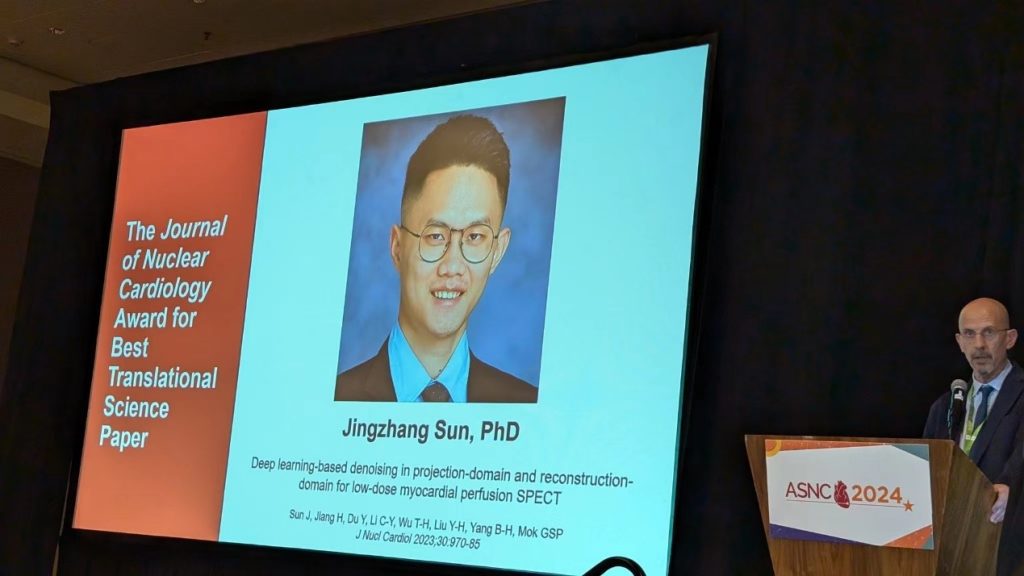A former Ph. D. graduate of the Biomedical Imaging Laboratory (BIG) from the Faculty of Science and Technology at the University of Macau, Jingzhang Sun, received the best technical paper award of the Journal of Nuclear Cardiology (JNC) at the 29th Annual Meeting of the American Society of Nuclear Cardiology (ASNC), held in Austin, Texas, US. ASNC, the world’s largest and most specialized academic association in nuclear cardiology, selects one exceptional technical paper published in JNC from hundreds of submissions worldwide each year.
The awarded study, entitled “Deep Learning-Based Denoising in Projection-Domain and Reconstruction-Domain for Low-Dose Myocardial Perfusion SPECT”, was led by Prof. Greta Mok from FST, collaborated with Taipei Veterans General Hospital and Yale University. This work demonstrates that using deep learning techniques in denoising in the projection domain (raw data) is superior to the denoising in the reconstruction domain (processed data) for myocardial perfusion single photon emission computed tomography (SPECT), a well-established method for diagnosing coronary artery disease yet with radiation concern. This study demonstrates the state-of-the-art deep learning-based denoising performance for SPECT, which can be translated to reduced ionizing radiation to patients and medical staff, as well as shortened scan time to increase patient throughput and enhanced patients’ comfort.
BIG is one of the world-leading teams in applying deep learning techniques in SPECT, with strong emphasis on clinical translation. This study was supported by the first Excellent Young Scientists Fund (Hong Kong and Macau) from the National Natural Science Foundation of China (81922080).
澳門大學科技學院生物醫學影像實驗室博士畢業生孫敬張近日在美國德州奧斯汀市舉辦的第29屆美國核子心臟學會(ASNC)年會上榮獲《核子心臟學雜誌》(JNC)最佳技術論文獎。ASNC為全球最大、最具專業影響力的核子心臟學學術組織,每年從JNC的數百篇論文中,甄選出一篇具卓越技術性貢獻的論文授予此獎項。
是次獲獎的課題為《深度學習于投影域和重建域的低劑量心肌灌注SPECT去噪研究》,由科技學院莫昇萍教授指導,並與台北榮民總醫院及美國耶魯大學合作完成。該研究通過應用深度學習技術,發現於投影域(即原始數據)進行去噪相較於在重建域(即處理後的數據)去噪,能提供更佳的效果。心肌灌注單光子發射電腦斷層掃描(SPECT)作為診斷冠心病的重要方法,但輻射劑量問題備受關注。該研究的創新技術可顯著提升SPECT的去噪表現,有助於減少患者及醫護人員的輻射劑量,或可以縮短掃描時間,提升患者檢查舒適度及提高診斷效率。
澳大生物醫學影像實驗室團隊為全球應用深度學習技術於SPECT領域的領先團隊之一,並著重技術的臨床應用價值。此項研究由首屆國家自然科學基金優秀青年基金(港澳)項目(81922080)支持。



